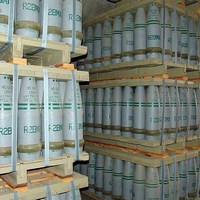The Nobel Committee’s decision to award this year’s Nobel Peace Prize to the Organization for the Prohibition of Chemical Weapons (OPCW) is welcome news. The organization is struggling with difficult missions in Syria and elsewhere, with a frozen budget and obsolete equipment, and the prize will provide a needed boost to the organization’s profile. Unfortunately, the peace prize will not make the many challenges the OPCW faces any easier.
Even with the elimination of the Syrian, Libyan and eventually Russian and U.S. chemical weapons arsenals, the threat of chemical weapons use is likely to persist. The OPCW lacks the authority and resources to identify and destroy all possible national chemical weapons stocks or to prevent or even monitor potential terrorist acquisition and use of dangerous chemicals. Meanwhile, scientific and technological developments such as nanotechnology, the advent of micro-reactors, the diffusion of the global chemical industry to developing countries, and merging of chemistry and biology are making it easier for terrorists to create deadly chemical agents. The Syrian affair may actually increase other countries’ interest in acquiring chemical weapons.
The OPCW’s Nobel Prize could provide a welcome means of helping the OPCW overcome some of its weaknesses. For example, the international community could exploit the favorable publicity to convene a donors’ conference to generate funds for the Syrian elimination mission but also for the OPCW in general.

